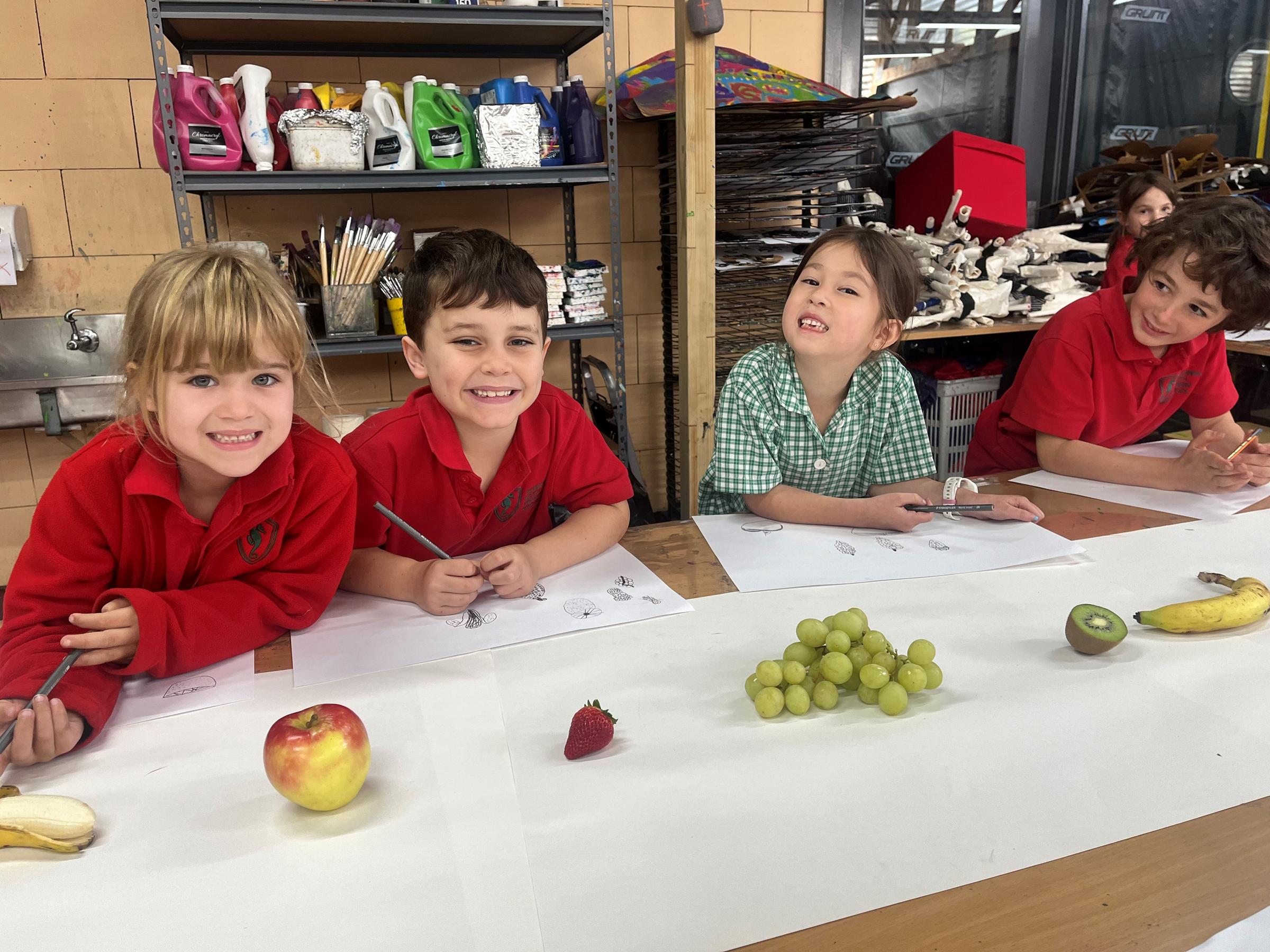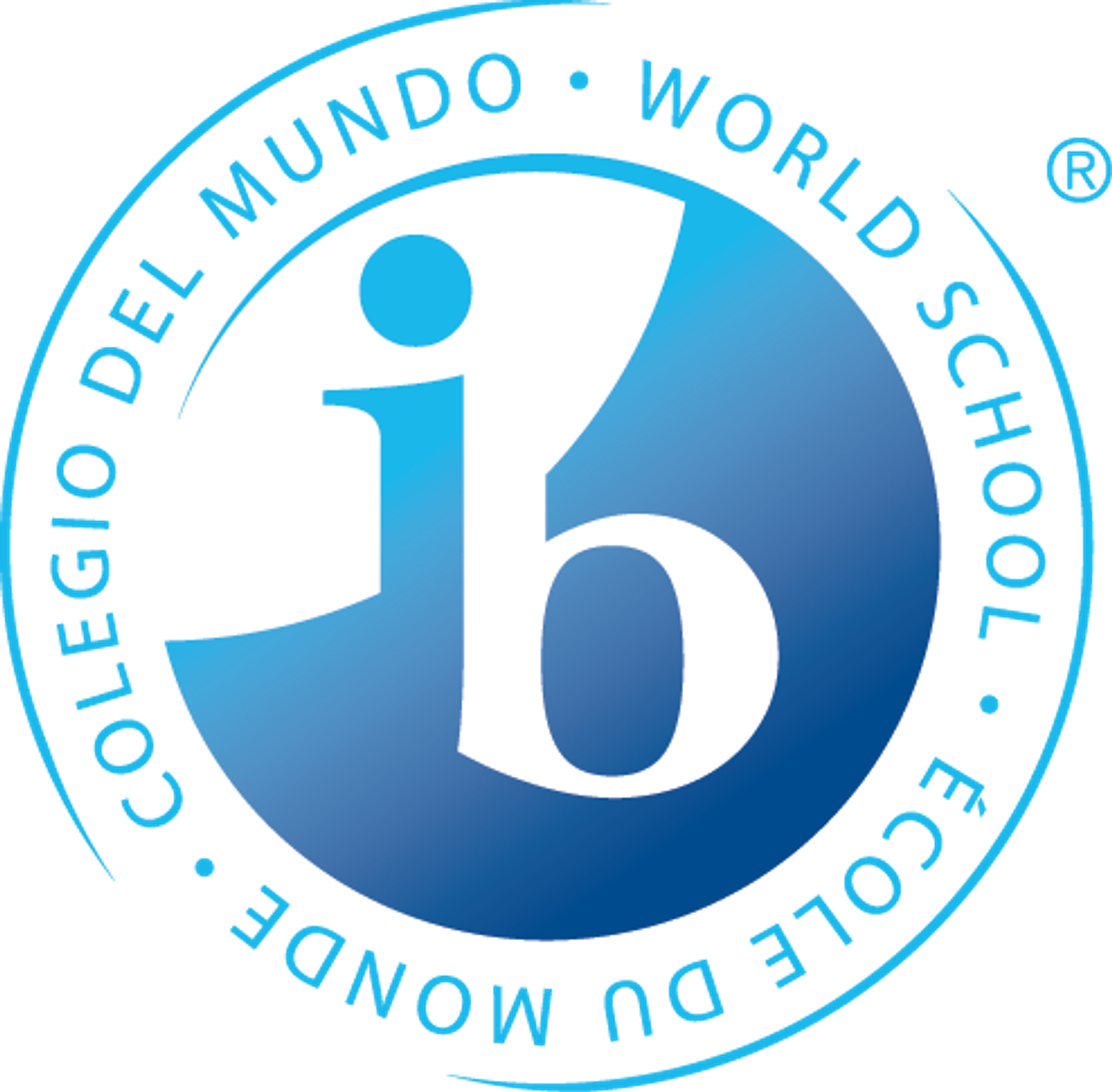Year 1 Specialist News -Term 2

Art
Transdisciplinary Theme
How we organise ourselves
Central Idea:
Artists depict food in imaginative and creative ways.
Lines Of Inquiry
- Artistic techniques to represent food creatively
- Famous artworks depicting food and how they show creativity and imagination
- How can colours and shapes be used to make food art realistic or creative.
Key Concepts
function and change
Learner Profile Attributes
inquirer and thinker
Students Will Create
- Still life fruit drawings. Developing skills and understanding of observational drawing
- Print plate and print design. Inspired by the still life fruit drawings, capture the linear detail of fruit to create an effective print design. Looking at the works of Margret Preston
- Paper collage inspired by Giuseppe Arcimboldi portraits, and the animations of Soupe-Opera
- Clay food on a plate. Capturing realistic form and detail of food using clay modelling skills
Japanese
Transdisciplinary Theme
How we organise ourselves
Central Idea:
Food goes through many stages of production before reaching us
Lines of inquiry
- The stages food products go through from origin to consumption
Key Concepts
function and perspective
Learner Profile Attributes
inquirer, knowledgeable
Cultural activities:
- Japanese incursion on 10 May (Japanese show- four seasons)
- Children’s Day in May
Students Will:
- Explain what Japanese foods are like and what Japanese people eat
- Say and spell some ingredients (meat and vegetables) of YAKISOBA: Japanese style fried noodles in Japanese
- Say some verbs for cooking like cut and fry in Japanese
- Learn about table manners of Japan
- Learn about unique food culture of Japan (plastic food samples, vending machines that sell food)
- Make paper YAKISOBA (Japanese style fried noodles)
- Learn about KODOMO NO HI (Children’s Day) - why, when and how Japanese people celebrate the festival
Music
Transdisciplinary Theme
How we organise ourselves
Central idea
A music composition goes through many stages of editing before being ready to perform
Lines of inquiry
- The stages a piece of music goes through from original idea to completion
- Resources and their management
- The function and importance of music elements, to help organise a piece to perform
Key Concepts
function and change
Learner Profile Attributes
inquirer and thinker
Just as food goes through many stages of production before reaching us, so does a musical composition go through many stages of editing and practice, before it can be performed for an audience. A focus will be on observing the change that occurs, as students prepare a musical item for performance
Students Will
- Find ways to record creative compositions and soundscapes (using both informal and formal notation) and perform them
- Perform the soundscape called ‘The Rain is Falling’.
- Perform the chant ‘A Big Green Tram’, using percussion instruments and voice
- Understand that both formal and informal notation is a form of communication from one person to the next and a way to organize ideas
- Use their knowledge of music vocabulary, to compare and contrast changes in music, as they listen appreciatively to a variety of works. The focus is both on learning to express one’s ideas and on being open minded to the ideas of others
- Learn a folk dance, taking note of the function of the music and variety of music elements, to help organise large groups of dancers
- Form a connection and understanding of remote communities, as they work towards a whole school performance, to raise funds for the Indigenous Literacy Foundation
Physical Education
Transdisciplinary Theme:
How we organise ourselves
Central Idea:
Sequencing our movements can produce healthy bodies and minds
Lines Of Inquiry:
- The benefits of sequencing movements
- The difference between organsied movement sequences and unstructured movements
- Understanding our bodies and their capabilities
Key Concepts:
Causation- understanding that a particular movement will create a particular response.
Change- adapting to different movements skills to create a flowing sequence that is organised and suitable for everyone.
Learner Profile Attributes:
risk taker and thinker
Students Will:
- Gymnastics: The students will explore movement through balance, strength, rotation, flight and demonstrate various combinations of these both on the floor and using equipment. Landing correctly and using organized movement sequences to connect mind with body.
- We will continue to practice and control the Fundamental Motor Skills of throwing, catching, kicking and bouncing.
Library
Transdisciplinary Theme:
How we organise ourselves
Central idea
Food goes through many stages of production before reaching us
Lines Of Inquiry:
- Learning how to use a Library catalogue to find books about food
- Discovering books in the library, that teach us about different types of food
- Identifying foods from each group and their importance in a healthy diet
- Reading multicultural books that showcase foods from different countries and cultures
Key Concepts
function and change
Learner Profile Attributes
inquirer and thinker
Students Will:
- Continue to revise parts of the book- title, author, illustrator, spine, barcode and endpapers
- Continue to discuss care and handling of the books and shelving them correctly in Picture fiction and Easy Fiction
- What is a Non-Fiction book? Discuss features and why they have numbers on their call number labels (numbers represent a subject code)
- Revise sections of the library
- Read and discuss texts related to UOI, “How we organise ourselves” - Students engage and access ways to explore the topic of food production through literature and resources available in the school library
- What do you do with an idea? Kobi Yamada
- Spaghetti Eddie by Ryan San Angelo
- Let’s Eat! By Ana Zamorano
- Handa’s Surprise by Eileen Browne
- Something Wonderful by Raewyn Caisley
- What do they do with all the Poo from all the animals at the zoo? Anh Do

